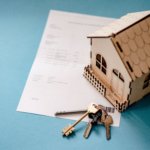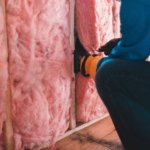November 3, 2025
What is a Notice of Security Interest and why it matters for your property closing
If you are buying, selling or refinancing a home in the Greater Toronto Area, it is important to understand what a Notice of Security Interest (NOSI) is and how recent legislative changes can affect you. This issue is also relevant if you are consulting a real estate lawyer in Etobicoke, Mississauga, Brampton or nearby cities.
What a Notice of Security Interest means
A Notice of Security Interest, often referred to as a NOSI, is a registration that appears on the title of a property under Ontario’s Personal Property Security Act (PPSA) when a homeowner has financed or leased equipment such as a hot water tank, air conditioning unit or water softener. The company providing or leasing the equipment registers the NOSI to protect its interest. Although the NOSI appears on the land title register, it does not mean that the supplier owns the property. It simply indicates that the supplier has a financial interest tied to the equipment located on the premises. When someone performs a title search, they will see this claim, which can create delays or complications when the homeowner wants to sell, refinance or transfer the property.
Common problems for homeowners
Many homeowners do not realize that a NOSI has been registered against their title until they attempt to sell or refinance. During the title search process, a buyer’s real estate lawyer in Scarborough or North York will often discover it. Sellers are then required to discharge or pay out the NOSI, often within a very short period before closing. This situation can put the seller at a disadvantage because the company that registered the NOSI holds the leverage and may demand a high payout. For buyers, if the NOSI is not properly removed, they could unknowingly assume the financial responsibility connected to the equipment lease. In some cases, these registrations originated from misleading door-to-door sales or contracts that were not fully explained to homeowners, particularly seniors.
The Homeowner Protection Act, 2024
In response to widespread issues caused by NOSIs, the Ontario government passed the Homeowner Protection Act, 2024. The legislation prohibits the registration of a NOSI for consumer goods such as household equipment. All existing consumer NOSIs registered on title are now deemed expired, which means they no longer affect title for most residential properties. However, the underlying contract or lease that created the obligation may still exist, so homeowners must continue to review their agreements carefully. The law’s intent is to protect property owners from hidden claims, promote transparency in lending and reduce the risk of last-minute surprises during real estate transactions.
Why this change matters
Whether you are working with a real estate lawyer in Toronto, Scarborough, North York or Etobicoke, these legislative changes offer significant benefits. Home sellers now face fewer surprises when a title search is performed. Buyers can proceed with greater confidence that they will not inherit unwanted claims linked to leased equipment. Even so, due diligence remains important. Equipment leases, financing arrangements and any non-consumer NOSIs must still be identified and addressed. Sellers should review their contracts and disclose all leased or rented items in the purchase and sale agreement. Buyers should include clauses that require any outstanding NOSIs to be cleared before closing. A qualified residential property lawyer can help ensure that a closing is not delayed or jeopardized by unexpected registrations or claims.
Steps for buyers and sellers
Before signing any documents, homeowners should ask their real estate lawyer to conduct a complete title search to identify any existing NOSIs or liens. It is also important to review all equipment rental or financing agreements to determine whether a NOSI might have been registered. Sellers should confirm that all obligations have been met and that the equipment provider has issued a discharge if necessary. Buyers should ask their lawyer to verify that any outstanding registrations have been cleared before finalizing the purchase. Even though most consumer NOSIs are now void under the new law, it is still advisable to ensure the title is formally cleared and no residual claims remain. Some companies continue to offer unnecessary lien removal services, so homeowners should seek legal advice before paying for any third-party service related to NOSI removal.
The value of professional legal assistance
If you are selling your home in Scarborough, refinancing in North York or buying in Etobicoke, consulting a knowledgeable real estate lawyer is the best way to ensure a smooth closing. A qualified real estate lawyer in Toronto or the surrounding area can review contracts, perform title searches, address financing issues and ensure your property transaction is completed properly and on time.
A Notice of Security Interest can be a hidden complication in property sales, purchases or refinancing. With the Homeowner Protection Act, 2024 now in force, consumer-related NOSIs can no longer be registered, offering stronger protection for Ontario homeowners. Even with these changes, it is essential to remain vigilant. Whether you need a Toronto real estate lawyer, or a real estate lawyer in Scarborough, North York or Etobicoke professional guidance will help you avoid costly surprises and protect your property rights. If you are preparing to buy or sell a home and want to understand how a NOSI could affect your transaction, contact an experienced real estate lawyer for advice and representation.









